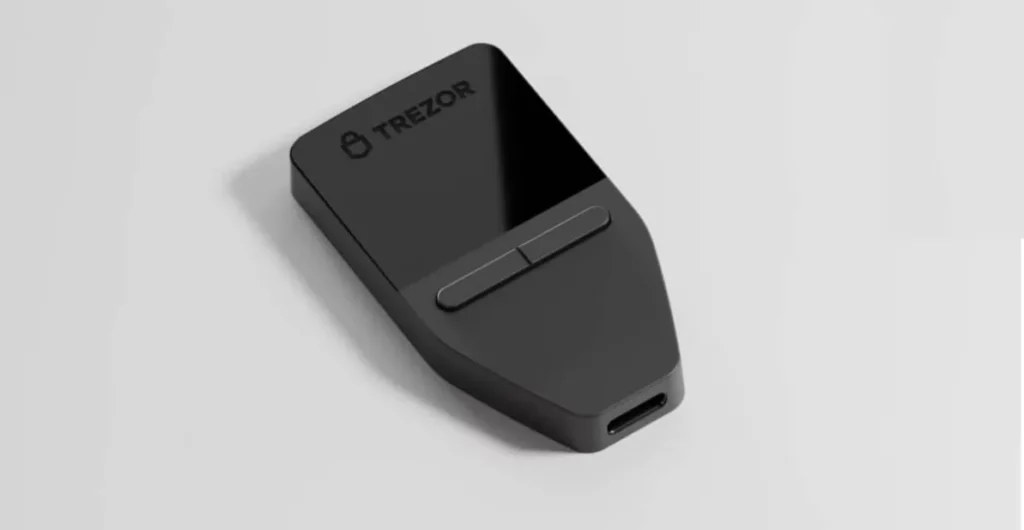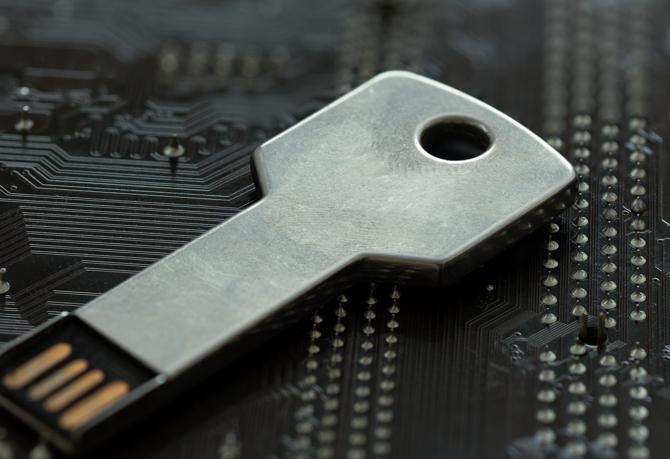
Over the past few years, malware threats targeting hardware wallets have increased, making it crucial to maintain a clean computer for secure cryptocurrency transactions. Users must implement robust antivirus software, regularly update their systems, and practice safe browsing habits to protect their digital assets. By taking proactive measures against malicious software, individuals can significantly minimize the risk of compromising sensitive information stored on their hardware wallets, ensuring peace of mind while managing crypto investments.
Understanding Hardware Wallets
The term “hardware wallet” refers to a physical device specifically designed for securely storing cryptocurrency private keys. These wallets operate offline, providing a layer of protection against potential cyber threats that may affect software wallets or online exchanges. By keeping the keys offline, hardware wallets significantly reduce the risk of hacking, phishing, and malware attacks, making them a reliable choice for crypto investors looking to safeguard their assets.
What is a Hardware Wallet?
Wallets that fall under the category of hardware wallets include devices like Trezor and Ledger. These devices utilize secure elements to store private keys and perform transaction signing, ensuring that sensitive data never leaves the device itself. Unlike traditional wallets that can be accessed through software on a computer or smartphone, hardware wallets necessitate physical access to the device, thereby enhancing security against remote attacks.
Benefits of Using Hardware Wallets
With hardware wallets, users can enjoy enhanced security features that protect their cryptocurrency holdings. Due to their offline nature, these wallets are less exposed to malware and phishing attacks. Furthermore, many hardware wallets provide advanced security protocols, such as recovery seed phrases and two-factor authentication, making unauthorized access significantly more challenging. Overall, they offer peace of mind for investors concerned about the safety of their digital assets.
Also, hardware wallets often support a wide variety of cryptocurrencies, allowing users to manage multiple assets from a single device. Their user-friendly interfaces make them accessible to both beginners and experienced investors alike. The combination of robust security and multi-asset support positions hardware wallets as an optimal solution for anyone serious about safeguarding their cryptocurrency investments.
Common Malware Threats
Clearly, malware poses significant threats to hardware wallets, potentially compromising the security of digital assets. Various forms of malware can infect computers, targeting sensitive information and leading to theft of cryptocurrencies. Keeping your system clean and secure helps in safeguarding your hardware wallet from these dangers.
| Type of Malware | Description |
| Keyloggers | Capture keystrokes to steal passwords and private keys. |
| Trojans | Disguise malicious software as legitimate programs to gain access. |
| Ransomware | Locks files and demands a ransom, disrupting access to critical data. |
| Spyware | Monitors user activity to gather sensitive information without consent. |
| Adware | Displays unwanted ads and can sometimes lead to more harmful software. |
Types of Malware Affecting Hardware Wallets
After identifying common types of malware, it is crucial to understand how they can specifically impact hardware wallets. Each type of malware can exploit vulnerabilities in the system, leading to unauthorized access to wallet data and funds. Users must remain vigilant, employing various protective measures to ensure their wallets remain secure.
Recognizing the signs of malware infestation can drastically improve security. Unusual computer behavior, unexpected shutdowns, or unfamiliar software can denote malware presence. Regularly updating antivirus software and performing system scans can assist in detecting these threats early.
Detection and Prevention of Malware
At the forefront of protecting hardware wallets is the active detection and prevention of malware. Implementing strong antivirus solutions and regularly monitoring the system for suspicious activity is vital. Further, users should avoid downloading software from untrusted sources and be cautious about opening email attachments or clicking on links from unknown senders.
Threats to hardware wallets necessitate a robust, multi-layered approach to detection and prevention. Utilizing firewalls, maintaining software updates, and practicing safe browsing habits can significantly reduce the risk of infection. Employing these strategies ensures a safer environment for managing digital assets, ultimately protecting one’s investments from malware-related risks.
Best Practices for Keeping Your Computer Clean
Even the most secure hardware wallet is vulnerable if your computer is compromised. Maintaining a clean and safe computing environment is vital for protecting your digital assets. Regularly implementing best practices will significantly reduce risks associated with malware and unauthorized access.
In addition to being cautious about the websites you visit and the software you download, staying informed on potential threats and adopting a proactive approach can further safeguard your system.
Regular Software Updates
Above all, keeping your operating system and applications up to date is vital for security. Many updates include critical security patches that address vulnerabilities, making it more difficult for malware to exploit your system. Regularly check for updates and enable automatic installations whenever possible to ensure you benefit from the latest protections.
Additionally, update your firmware and any other software related to your hardware wallet. By ensuring that all components of your system are current, you’re less likely to fall victim to rapidly evolving threats.
Using Antivirus and Anti-malware Tools
An effective line of defense against malware is deploying reputable antivirus and anti-malware tools. These programs scan your computer for harmful software and assist in removing threats as they arise. Regular scans and real-time protection can provide an extra layer of security and help maintain a healthy system.
In fact, some antivirus tools offer features such as web protection and phishing detection, which prevent you from visiting malicious websites and inadvertently downloading threats. These additional functionalities enable a comprehensive defense against emerging threats.
Safe Browsing Habits
Safe browsing habits are vital for minimizing exposure to malware and other online threats. Avoid clicking on suspicious links, and be vigilant about the websites you visit. Always ensure URLs are legitimate and encrypted (https) before entering sensitive information.
Another effective strategy is to use private browsing modes or incognito settings in your web browser. This limits the retention of browsing history and can restrict cookies that may compromise your privacy. By staying mindful of your online behavior, you can enhance your overall security.
Securing Your Hardware Wallet
For individuals utilizing hardware wallets, securing them against potential threats is imperative. While hardware wallets are designed to keep your private keys safe, a compromised computer can still put your investments at risk. The integrity of your wallet relies not only on the device itself but also on the environment in which it operates. Taking proactive steps to secure both your wallet and your computer is vital in safeguarding your assets.
Physical Security Measures
On the physical front, maintaining the integrity of your hardware wallet is key. Store your wallet in a safe location, free from unauthorized access. Consider using safes or locks and avoid leaving it unattended in public spaces. Additionally, be cautious when handling your wallet; always ensure your hands are clean and dry to prevent any accidental damage.
Software Security Practices
Practices to enhance software security are equally significant. Regularly update your operating system and security software to stay protected from vulnerabilities. Use strong passwords and consider enabling two-factor authentication (2FA) to add an extra layer of security. Be cautious when downloading software; only obtain applications from reputable sources to minimize risks of malware and phishing attacks.
Security practices play a pivotal role in defending your hardware wallet against threats. Conduct routine checks on the firewall settings and install anti-virus programs to help detect and eliminate any potential malware. Additionally, avoid using public Wi-Fi networks when accessing your hardware wallet, as these can expose you to snooping and interception attempts. By implementing these software security measures, you can significantly reduce the risk of your hardware wallet being compromised.
Case Studies of Malware Attacks
All hardware wallet users should be aware of the numerous malware attacks targeting computer systems. These attacks frequently exploit vulnerabilities to access sensitive data and compromise the security of hardware wallets. Here are some detailed case studies showcasing the scale and impact of these incidents:
- 2020 LedgerSome of the links on this page are affiliate links. If you purchase a cold wallet through these links, we may earn a commission at no extra cost to you. Data Breach: Over 1 million customer email addresses leaked, leading to phishing attacks targeting users of LedgerSome of the links on this page are affiliate links. If you purchase a cold wallet through these links, we may earn a commission at no extra cost to you. wallets.
- 2019 Cryptojacking Attack: More than 700,000 computers infected with malware that hijacked resources to mine cryptocurrency, risking wallet security.
- 2018 Electrum Wallet Scam: Attacks on Electrum wallets that siphoned funds from unsuspecting users, resulting in over $1 million stolen.
- 2017 WannaCry Ransomware: This global attack infected hundreds of thousands of computers, demonstrating how ransomware can quickly spread, affecting wallet access.
Notable Incidents
Against the backdrop of evolving cyber threats, several notable malware incidents have highlighted vulnerabilities in cryptocurrency management. The 2020 Ledger data breach illustrated the potential fallout from inadequate security measures, where personal data was compromised and used in targeted phishing campaigns. Furthermore, the Electrum wallet attack in 2018 showcased how attackers could manipulate software updates to deliver malicious content, which ultimately led to significant financial losses for users.
Lessons Learned
To combat malware threats, rigorous security practices must be emphasized among hardware wallet users. Auditing software, implementing strong passwords, and staying updated with security patches are imperative actions that can mitigate risks. Strategies such as avoiding public Wi-Fi for transactions and enabling two-factor authentication can bolster defenses against intrusive attacks. Moreover, collaborating with platforms that prioritize security can safeguard digital assets.
Plus, frequent reassessment of security protocols is vital. Adopting a proactive approach, including regular software updates and utilizing antivirus programs, can dramatically enhance protection against emerging threats. This has shown that awareness and education are fundamental in keeping users informed about potential risks and adapting to the fast-paced developments in cyber threats.
Resources for Further Protection
Keep your system secure by utilizing a variety of tools designed to enhance your hardware wallet’s safety. Anti-virus software like Bitdefender or Norton provides real-time protection against malware, while Malwarebytes is excellent for cleaning up infections that may have already occurred. In addition, using a virtual private network (VPN) such as NordVPN can help protect your internet connection from unauthorized access, ensuring that your communications remain private and secure.
Recommended Tools and Software
Any serious hardware wallet user should consider implementing strong password managers like LastPass or 1Password to generate and store complex passwords safely. Furthermore, browser extensions like uBlock Origin can help eliminate malicious ads and scripts that could compromise your system. Regular system updates and enabling two-factor authentication wherever possible also play an important role in your digital security.
Educational Resources
About enhancing your knowledge of cybersecurity, there are numerous free online courses available that can help you understand the dangers of malware and how to combat it. Websites such as Coursera and edX offer courses focused on best practices for online safety and secure transactions. Additional resources, such as security blogs and forums, allow you to stay updated on new threats and effective defense strategies that professionals share.
At security blogs like Krebs on Security or The Hacker News, you can find valuable insights into emerging threats and vulnerabilities in the crypto space. Engaging with online communities such as Reddit’s r/CryptoCurrency may also provide real-time updates on best practices and peer experiences, allowing you to stay informed and protect your financial assets effectively.
Summing up
From above, it is evident that maintaining a clean computer environment is imperative for the effectiveness of hardware wallets in safeguarding cryptocurrencies. Regular software updates and the use of reputable antivirus programs play a vital role in minimizing the risk of malware attacks. Additionally, adopting safe browsing practices and avoiding suspicious downloads further contribute to enhancing overall security.
Investing time in security measures not only protects your hardware wallet but also preserves your digital assets from potential threats. By implementing these strategies, users can enjoy a higher level of confidence in their cryptocurrency activities, ensuring that their investments remain secure against the evolving landscape of cyber threats.







